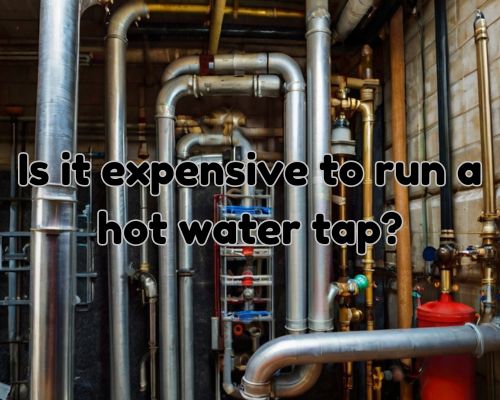If you’re considering installing a hot water tap in your home, you may be wondering if it’s expensive to run. Hot water taps are a convenient way to have hot water on demand, without having to wait for a kettle or a pot to boil. But are they worth the investment in terms of energy costs? Let us know it with Dean Owens of Plumber Warragul.

The answer is that it depends on the type of hot water tap you choose, as well as your usage patterns. According to a running cost estimator provided by Rheem Hot Water, the estimated running costs between various water heater types can vary significantly. The estimator is based on an average daily load of 200L and 19 tap turns, so your actual usage may differ. Additionally, the cost to run a hot water tap will depend on your energy tariffs and the efficiency of the system.
It’s important to note that while hot water taps may have higher upfront costs than traditional kettles or pots, they can save you time and energy in the long run. With a hot water tap, you can have hot water on demand without having to wait for water to boil. This can be especially convenient for busy households or those who frequently use hot water for cooking or drinks. Ultimately, whether a hot water tap is worth the investment will depend on your individual needs and usage patterns.
Understanding the Costs Associated with Hot Water Taps
When it comes to hot water taps, there are several costs to consider. In this section, we will break down the costs associated with hot water taps, including initial investment and installation costs, running costs and energy efficiency, and maintenance and long-term expenses.
Initial Investment and Installation Costs
The upfront cost of a hot water tap can vary depending on the type and brand you choose. Boiling water taps, for example, can cost anywhere from $3,000 to $6,000 for residential use and up to $10,000 for commercial use. The installation cost can also vary depending on your location and the complexity of the installation. You will need to hire a qualified installer, plumber, or electrician like Plumber Warragul to install your hot water tap properly.
Running Costs and Energy Efficiency
Hot water taps can be energy-efficient, which means they consume less energy and can help you save money on your energy bills. However, the running costs can vary depending on the type of hot water tap you choose, your energy tariffs, and your energy consumption. Continuous tariff and energy price cap are some of the common energy tariffs in Australia. You can check with your energy provider to see which tariff suits your needs.
Maintenance and Long-Term Expenses
Like any other appliance, hot water taps require ongoing maintenance to ensure they function properly and last longer. Filters and scale control are some of the common maintenance requirements for hot water taps. Limescale buildup can affect the performance of your hot water tap, so regular cleaning is necessary. You may need to hire an engineer or plumber for more complex maintenance tasks.
In conclusion, the costs associated with hot water taps can vary depending on several factors, including the type of tap, installation costs, running costs, and maintenance requirements. However, with proper installation, maintenance, and energy-efficient usage, hot water taps can be a cost-effective and convenient option for your home or business.
Comparative Analysis of Hot Water Tap Solutions
Hot Water Tap Models and Features
Hot water taps are becoming increasingly popular in modern households due to their convenience and energy efficiency. There are several models available in the market, ranging from basic to high-end models. Some of the best boiling water taps include Quooker, Qettle, Grohe, and Franke. These taps come with various features such as adjustable temperature, insulated tank, and filtered water.
Pros and Cons of Boiling Water Taps vs Traditional Kettles
Boiling water taps are more energy-efficient than traditional kettles as they only heat the water that is required, reducing standby energy consumption. They also provide instant hot water, eliminating the need to wait for the kettle to boil. However, boiling water taps have a higher upfront cost compared to traditional kettles. Additionally, they require professional installation and maintenance, which can add to the overall cost.
Alternative Energy Solutions and Cost Effectiveness
If you are looking for a more environmentally friendly and cost-effective solution, solar water heaters are worth considering. While they have a higher upfront cost, they can significantly reduce your energy bills in the long run. They work by using solar energy to heat the water, which is then stored in a tank for later use. Solar water heaters are energy-efficient and can provide hot water even during power outages.
When choosing a hot water tap solution, it is important to consider your needs, budget, and energy efficiency. While boiling water taps may be more convenient, they may not be the most cost-effective option for everyone. Ultimately, the decision comes down to personal preference and budget.